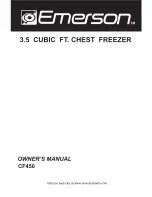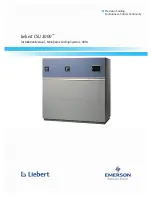
5
HOW TO USE THE REFRIGERATOR COMPARTMENT
Connet the lead to the mains. ( At least wait 2 hours after
delivery: refer to section ”Before connecting to the mains)
Food can be stored after 3 to 4 hours cooling.
- the interior light switches on when the door is opened;
- the compressor operates and starts cooling;
The suitable storage temperature for fresh food is provided in
the "MID" position at an ambient temperature of 16 ~ 32ºC.
REFRIGERATOR AND FREEZER TEMPERATURE
CONTROL KNOB (5) SEE FLAP AT BACK OF
MANUAL.
(Knob is located inside the refrigerator compartment.)
"LOW": warmer than position "MID"
"MID": normal storing temperature
"HIGH": colder than position "MID"
Note: When you set ”refrigerator and freezer temperature control
knob”(5) LOW, MID, and HIGH then the temperature of the
refrigerator and freezer are automatically adjusted.
NOTES ON FREEZING AND STORAGE
1. Fo l l ow storage times indicated by the fro zen food
m a n u f a c t u re r. Make sure that the packaging is undamaged.
2. Save energy: minimize opening of the door by storing
identical food items together.
3. Items suitable for fre ezing: meat, poultry, fresh fish,
ve g e t a b l e s , fruits, dairy products, bread, baked goods, pre-
cooked meals.
4. Items not suitable for freezing: lettuces, radishes, grapes,
whole apples and pears, fatty meats.
5. When you freeze food yourself, pack it in appropriate
quantities. In order to freeze food right through do not
exceed the following quantities to best preserve the quality:
- fruit and vegetables: up to 1 kg,
- meat: up to 2.5 kg.
6. Blanch vegetables after washing and cutting them. (2-3
minutes in boiling water; then quickly cool them down in
cold water. When you use a steamer or microwave oven,
follow the operating instructions).
7. Keep packs dry in order to avoid them freezing together.
8. Freeze fresh food separately from already frozen foods.
9. Do not salt or season fresh food or blanched vegetables
before freezing. Other foods may be lightly salted or
seasoned. The intensity of flavour of some spices can change.
10.Use materials or containers specially suitable for freezing in
order to avoid loss of quality.
11. Write contents and date of freezing on the packs. Do not
exceed the storage time indicated in order to preserve quality.
12. Do not freeze bottles or cans with carbonated drinks as they
might burst.
13. Take out as much food as is immediately required for
thawing. Prepare it as soon as possible after thawing.
WHEN PURCHASING FROZEN FOOD
1. Make sure that the packaging is undamaged (damage may
have caused the food to deteriorate). Bulging packs or packs
which are marked with liquid stains could have been
i m p ro p e r l y stored and may have been partially thawed.
2. Leave frozen food purchases until last and transport the
items in insulated bags.
3. Place the items in the freezer as soon as possible.
4. Do not refreeze partially thawed food. Consume it within 24
hours.
5. Observe the date of consumption and storage information.
CLEANING
1. Always disconnect the appliance from the mains supply.
2. Do not use abrasives. Periodically clean with a sponge
dampened in lukewarm water. A neutral pH detergent may
be used. Rinse and dry with a soft cloth.
3. Wipe the outside with a soft cloth dampened in water.
4. Periodically clean the front grille and the radiator at the back
with a vacuum cleaner or a brush.
English
GENERAL RECOMMENDATIONS
Keep air vents open.
No glass bottles in the freezer
compartments. The bottles might
burst.
Ice cubes and ice lollies straight out
of the freezer are too cold for
consuming.
They may cause ‘cold’ burns.
Do not allow children to play or hide
in the refrigerator to prevent the risk
of trapping and suffocation.
Always unplug before cleaning and
servicing.
If the supply cord is damaged, it
must be replaced by the
manufacturer or its service agent or
a similarly qualified person in order
to avoid a hazard.
Summary of Contents for ERF-36.M
Page 8: ......
Page 10: ...ERF 33 M ...

































